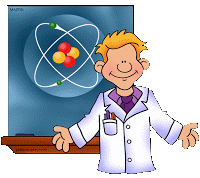 |
| Science.lotsoflessons.com |
Still in the process of educating myself: ‘What is science?’ so I can better understand the science of climate change.
 |
| seaver.pepperdine.edu |
Surprisingly, I did get to hear Eugenie Scott present an evening lecture at the Southern Oregon University in Ashland, Oregon in November, 2009. Over the past several years now, I have taken advantages of opportunities to learn what I can what is science as I want to educate others about climate change and inspire them to take action. In my last blog, I mentioned attending the 2011 NASA & National Park Service: Earth to Sky V: Communicating Climate Change Conference. In December 2011, I attended the American Geophysical Union conference in San Francisco to meet and hear presentations from so many top climate scientists. This past February, I heard Dr. Ralph Cicerone, President of the US Academy of Sciences, speak on the campus of Washington University in St. Louis, about climate science. During my summer job at Crater Lake National Park, I have had access to chat with local scientists on staff also.
2. Science never proves. Science explains.
3. Proof requires 100% certainty, which science really never provides.
4. However, science can disprove things.
5. Science always leaves room for some other explanation.
6. The scientific definition of a theory is ‘A comprehensive explanation of some aspect of the natural world that is supported by a vast body of evidence.’
7. This is completely different than the common definition of theory, which is a ‘best guess,’ ‘hunch’ or idea.
8. Multiple lines of evidence point to the existence of human caused climate change, which makes climate change a very strong scientific theory. Climate change is not some hunch or best guess.
9. No level of scientific certainty is higher than Theory.
10. The goal of science is to build THEORIES.
11. Uncertainty in science is not a weakness, but a strength. Uncertainty, allows room for stronger and more useful explanations to emerge that can save lives.
12. Scientists are extremely competitive. Try as they might, scientists have not been able to disprove that human are causing climate change.
3. New scientific knowledge is not considered valid until it withstands the peer review process.
 |
| walrus.wr.usgs.gov |
To say I believe in evolution or climate change would be silly. It would be as bizarre as saying, “I believe in gravity.” Based on overwhelming evidence, I accept gravity. The same is true for evolution and climate change. I do not believe in evolution or climate change. However, based upon multiple lines of evidence from numerous sources of inquiry, I strongly accept theory of climate and evolution.
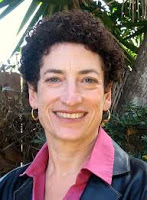 |
| news.stanford.edu |
An excellent source for the importance of scientific consensus is the epilogue of the 2010 book Merchants of Doubt by Dr. Naomi Oreskes, a University of California, San Diego professor and science historian. On page 268, she states, science “does not provide proof. It only provides the consensus of experts, based on the organized accumulation and scrutiny of evidence.”
Dr. Oreskes then gives the example of the theory of plate of continental drift, which was hotly debated in the 1940s. At the time, Harvard professor Marlin Billings taught his students 19 different explanations for the drift theory. However, by the 1970s, research had produced enough evidence to settle the question of continental drift into the established theory of plate tectonics. She explained that “After that point, there are no ‘sides.’ There is simply accepted scientific knowledge.” Yes, unanswered questions may remain for scientists to focus for explanations. However, “There is simply the consensus for expert opinion of that particular matter. That is what scientific knowledge is.”
The individual scientist vs. science.
So many people, including me, had the wrong picture of what science is. We picture an individual scientist holding a glass beaker with a smoky chemical drifting out. However, that is not how scientist historians, science teachers, or scientists themselves perceive science. Again Dr. Oreskes in Merchants of Doubt:
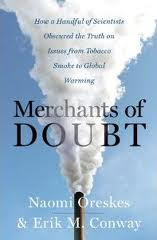 |
| en.wikipedia.org |
“For many of us, the word “science” does not actually conjure visions of science; it conjures visions of scientists. We think of the great men of science–Galileo, Newton, Darwin, Einstein–and imagine them as heroic individuals, often misunderstood, who had to fight against conventional wisdom or institutions to gain appreciation for their radical views. To be sure, brilliant individuals are an important part of the history of science; men like Newton and Darwin deserve the place in history they hold. But if you ask a historian of science, When did modern science begin? She would not cite the birth of Galileo or Copernicus. Most likely, she would discuss the origins of scientific institutions.”
This is a radical thought for me, and it may be for you also. It is scientific institutions much more than individuals that makes science a helpful and valid way of explaining aspects of the natural world. Dr. Oreskes goes on to write: “From its earliest days, science has been associated with institutions–the Accademia dei Lincei, founded in 1609, the Royal Society in Britain, founded in 1660, the Academie des Sciences in France, founded in 1666–because scolars (savants and natural philosophers as they were variously called before the 19th century invention of the word “scientist”) understood that to create new knowledge they needed a meansto test each other’s claims.”
It’s Scientific Consensus that shows Galileo was right and wrong
Albert Einstein referred to Galileo as, “The Father of Modern Science.” Dr. Stephen Hawking thinks Galileo is probably more responsible than anyone else for the birth of modern science. Galileo is remembered for science he got right, championing the idea Earth revolves around the sun. However, he was proven wrong for his evidence why the revolves around the sun.
Interesting, famous dissentors of climate change, such as Texas Governor Rick Perry, like to dissmss the overwhelming scientific agreement on climate change stating that “even Galileo got outvoted for a spell.”
In 1633, the Catholic Church unfairly convicted Galileo of heresy for his statements supporting heliocentrism, the idea that the earth revolves around the sun, which contradicted the church’s teaching that the earth was the center of the universe. Today, Galileo is considered to be a hero, especially among climate contrarians for prompting that idea in the face of strong fight from the Catholic church.
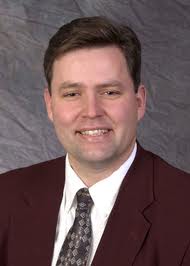 |
| geology.byu.edu |
Oddly, according to Dr. Barry Bickmore, Professor of Geologic sciences at Brigham Young University, on his lecture on You Tube, “How to Avoid the Truth about Climate Change,” Galileo had a weak primary argument to support his theory. He was afraid his astronomy observations were not very strong. Therefore, he proposed ocean tides were the strongest evidence to support his theory.
Galileo was convinced the earth revolved around the sun because the tides showed the ocean water sloshed back and forth. Galieo was convinced there was one tide going in and another tide going out to establish his theory. In reality, ocean tides go in and out twice a day everywhere. He knew this was true for the Mediterrean. However, he figured the tides were once a day for the Atlantic. This did not prove to be true. As more people told Galileo he as wrong, the more he dug in his heels. He never rejected his argument.
The point, according to Dr. Bickmore, is that even great scientists can behave dogmatically. Therefore, scientific consensus is crucial. “People who say science is not about consensus, they do not understand science.”
Dr. Bickmore went on to say that “We have always had (scientific) loners out there. The brilliant loners would come up with some great idea. The problem is that they are often not perfect ideas. It did not pick up any legs because it did not have what the modern scientific community has, which is the community itself. Whenever a scientist presents an idea that is not perfect, there is going to be dozens of other scientists beating the crap out of it for an extended period. They do this to work out all the kinks to make it better than before. That is the difference the Greek philosophers and modern science: consensus.”
Science Lesson #15:
In science, ‘A Jury of your Peers,’ accepts or reject your findings.
To reach scientific consensus, your tested hypothesis is not considered to be science until it is judged by a jury of your scientific peers, the peer review process. As Carole Holomuzki teaches her students and shared with me, “Until a tested hypothesis is published in a peer-reviewed journal, IT IS NOT CONSIDERED TO BE A SCIENTIFIC FINDING!!!” (her emphasis).
In Merchants of Doubt, Naomi Oreskes explains peer review this way:
“Since the 1600s, the basic idea has remained the same: scientific ideas must be supported by evidence, and subject to acceptance or rejected…Whatever the body of evidence is, both the idea and the evidence used to support it must be judged by a jury on one’s scientific peers. Until a claim passes that judgement–that peer review–it is only that, just a claim. What counts as knowledge are the ideas that are accepted by the fellowship of experts.”
Climate change contrarian scientists are ‘sore losers.’
It may seem very harsh to hear, Dr. Naomi Oreskes does not mince words here. When an individual scientist rejects scientific consensus or the peer review process, especially the science of climate change, they are not advancing scientific knowledge or understanding. It really is no different than a sports athlete who lost a game fair and square and by a huge score, but still refuses to accept the results.
“Conversely, if a claim is rejected, the honest scientist is expected to accept the judgement, and move on to other things. In science, you don’t get to keep harping on a subject until your opponents just give up in exhaustion.”
Unfortunately, in the mindset modern journalism, we think it is fair to give people who dissent and disagree
full consideration. Dr. Oreskes states though, “What we do not understand is that in many cases, that person was given due consideration in the halls of science.” For the past 30 years, Oreskes contends, climate change contrarian scientists “took their claims to the halls of public opinion, rather than the halls of science, they were stepping outside the institutional protocols that for 400 years have tested the veracity of scientific claims…
 |
| ccllbaseball.com |
This is where Oreskes really calls the climate contrarians to task, on page 270 of Merchants of Doubt:
“Many of the claims of our contrarians had already been vetted in the halls of science and failed to pass the test of peer review. At that point, their claims could not really be considered scientific, and our protagonists should have moved on to other things. In a sense, they were poor losers. The umpires had made their call but our contrarians refused to accept it.” (my emphasis)
Skepticism must be productive skepticism
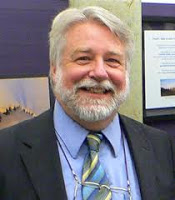 |
| science.gsfc.nasa.gov |
Amazingly, despite all the overwhelming evidence that climate change is real, caused by humans, and over 95% of scientific consensus, some people still want to argue they are skeptical that climate change is real. NASA scientist Bob Cahalan had an interesting response when a group of us chatting with him at a NASA and National Park Service Earth To Sky: Communicating Climate Change Conference in September, 2011. When we engage hard core climate skeptics, we should “encourage them to be skeptical, and go beyond it to propose a theory.” Then challenge them with, “How are you going to test that theory.”
Then people I admire, such as Carole Holomuzki, Eugenie Scott, Naomi Oreskes, Barry Bickmore, and Bob Cahalan, would encourage them to find evidence to support their theory. Then after they have gathered their evidence, take that evidence to a group of respected and credible scientists. Then let the scientists test it for themselves, or peer review it, so they can accept or reject the theory.
If you build an accepted theory on why climate science should be rejected, you will be rich and famous! As I mentioned in my previous blog, US Academy of Science President Ralph Cicerone, has tried in his mind late at night for past 35 years to disprove climate change, but he has had not success. If one of the top scientific minds in America cannot disprove climate change, what makes you think you can?
Science and Religion both matter
Towards the beginning of the blog, I reflected on the difference between belief and acceptance.
I want to end this blog posting my favorite all time quote about religion and science from my hero, Dr. Martin Luther King, Jr:
 |
| nobelprize.org |
Science investigates; religion interprets.
Science gives man knowledge which is power;
Religion gives man wisdom which is control.
Science deals mainly with facts;
religion deals mainly with values.
The two are not rivals. They are complementary.
Science keeps religion from sinking into the valley of crippling irrationalism and paralyzing obscurantism. Religion prevents science from falling into the marsh of obsolete materialism and moral nihilism.”

